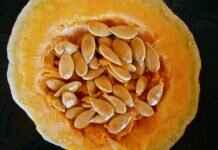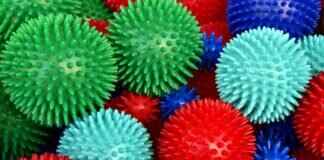This article explores the benefits, nutritional value, and purchasing considerations of chia seeds available at Costco. We aim to provide a comprehensive review to help you determine if they are worth your investment.
Chia seeds are tiny, nutrient-rich seeds derived from the Salvia hispanica plant, native to Central America. These seeds have gained immense popularity due to their numerous health benefits and versatility in various recipes.
Costco is renowned for its bulk purchasing options and competitive prices. Buying chia seeds from Costco can offer significant savings compared to other retailers. Here are some reasons to consider:
- Costco’s Pricing Strategy: Costco’s pricing strategy often includes lower prices on bulk items, making it an attractive option for health-conscious shoppers looking to stock up on chia seeds.
- Membership Benefits: A Costco membership provides access to exclusive deals and discounts, enhancing the value of purchasing chia seeds in larger quantities.
- Quality Assurance: Costco is committed to quality, offering reputable brands that ensure product integrity.
When comparing chia seeds from Costco to those at other retailers, it’s important to evaluate factors like sourcing, packaging, and freshness for the best value. Costco’s reputation for quality can often mean better products at lower prices.
Chia seeds are packed with essential nutrients, including omega-3 fatty acids, fiber, and protein. Understanding their health benefits can help you decide if they are a worthy addition to your diet.
Chia seeds are rich in antioxidants, vitamins, and minerals. Their high fiber content can aid digestion and promote a feeling of fullness, making them a popular choice for weight management.
While chia seeds offer numerous health benefits, there are potential risks, such as digestive discomfort for some individuals. It’s essential to consume them in moderation to avoid any adverse effects.
Incorporating chia seeds into your meals can be easy and enjoyable. They can be added to:
- Smoothies
- Baked goods
- Salads
- Yogurt
There are countless recipes that feature chia seeds, from puddings to energy bars. Exploring these options can help you find creative ways to enjoy their health benefits.
Proper storage is crucial for maintaining the freshness of chia seeds. Keeping them in a cool, dry place can extend their shelf life and preserve their nutritional value.
While chia seeds are popular, there are alternatives available that offer similar health benefits. Exploring these options can help you diversify your diet.
Flaxseeds and chia seeds share many nutritional benefits but differ in taste and texture. Understanding these differences can help you make an informed choice based on your preferences.
There are numerous superfoods on the market, each with unique benefits. Exploring alternatives like hemp seeds or quinoa can provide additional nutrients and variety in your diet.
Customer feedback is invaluable when considering a product. Reviews from Costco shoppers can provide insights into the quality and value of their chia seeds.
Many customers rave about the quality and affordability of Costco’s chia seeds, often highlighting their versatility in cooking and baking.
Despite many positive reviews, some customers may express concerns regarding packaging or the freshness of the seeds upon purchase.
Ultimately, whether chia seeds from Costco are worth buying depends on your dietary needs and preferences. Evaluating their health benefits, pricing, and quality can help you make an informed decision.
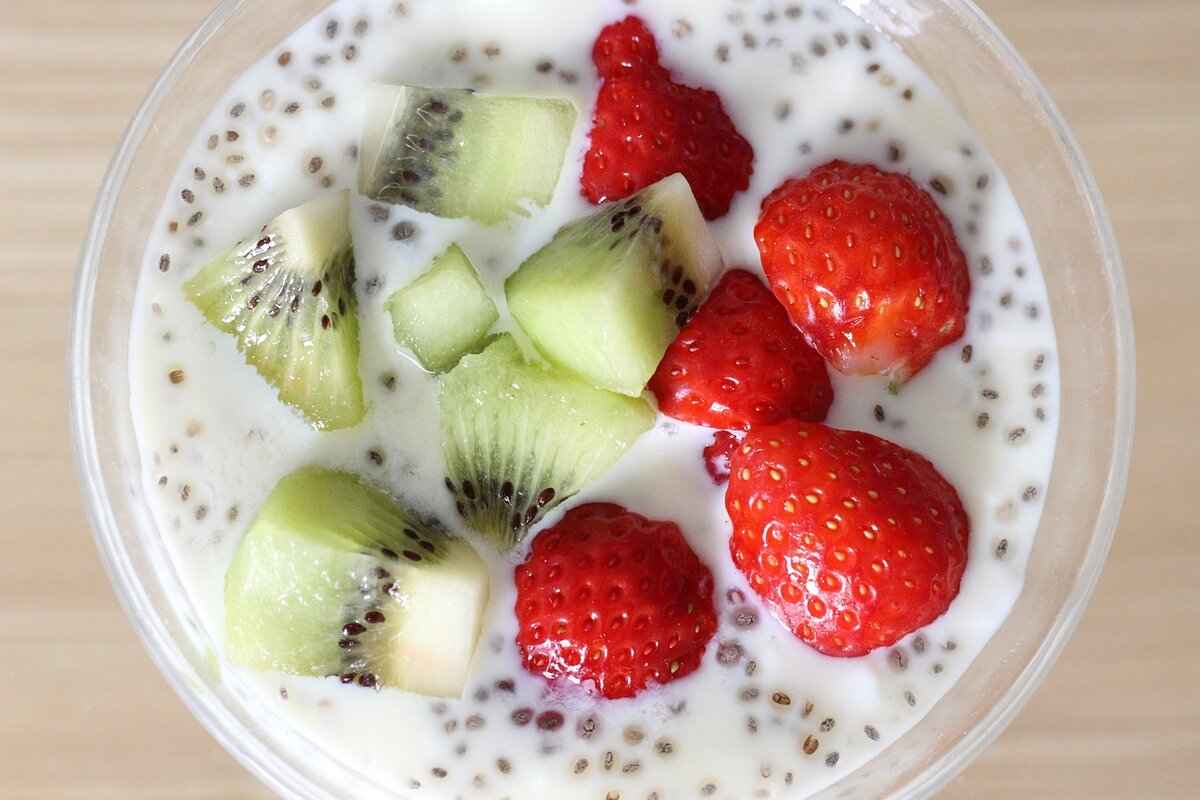
What Are Chia Seeds?
Chia seeds are small, oval-shaped seeds that come from the Salvia hispanica plant, which is native to Mexico and Guatemala. These tiny seeds have become increasingly popular in recent years due to their impressive nutritional profile and numerous health benefits. Rich in essential nutrients, chia seeds are often hailed as a superfood and are incredibly versatile, making them an excellent addition to a variety of dishes.
Chia seeds are packed with a range of vital nutrients that contribute to their health benefits:
- Omega-3 Fatty Acids: These essential fats are crucial for heart health and brain function.
- Fiber: Chia seeds are an excellent source of dietary fiber, which aids digestion and promotes a feeling of fullness.
- Protein: They contain a good amount of protein, making them a suitable option for vegetarians and vegans.
- Antioxidants: Chia seeds are rich in antioxidants, which help combat oxidative stress and inflammation.
- Minerals: They provide essential minerals such as calcium, magnesium, and phosphorus.
The health benefits of chia seeds are numerous and well-documented. Here are a few key advantages:
- Weight Management: Due to their high fiber content, chia seeds can help regulate appetite and reduce cravings.
- Heart Health: The omega-3 fatty acids in chia seeds contribute to lower cholesterol levels and improved cardiovascular health.
- Bone Health: The calcium and phosphorus in chia seeds support bone density and strength.
- Blood Sugar Control: Chia seeds may help stabilize blood sugar levels, making them beneficial for those with diabetes.
Incorporating chia seeds into your diet is easy and enjoyable. Here are some popular methods:
- Smoothies: Blend them into your favorite smoothie for added nutrition.
- Baking: Substitute chia seeds in recipes for muffins, pancakes, or bread.
- Puddings: Mix chia seeds with milk or a dairy-free alternative to create a delicious pudding.
- Salads: Sprinkle them over salads for added crunch and nutrition.
While chia seeds are generally safe for most people, there are a few considerations to keep in mind:
- Digestive Issues: Some individuals may experience digestive discomfort if they consume large quantities of chia seeds without adequate hydration.
- Allergic Reactions: Though rare, some people may have allergies to chia seeds.
In conclusion, chia seeds are a nutrient-dense food that can provide numerous health benefits when incorporated into a balanced diet. Their versatility makes them easy to add to various meals, and their rich nutritional profile supports overall health and wellness.
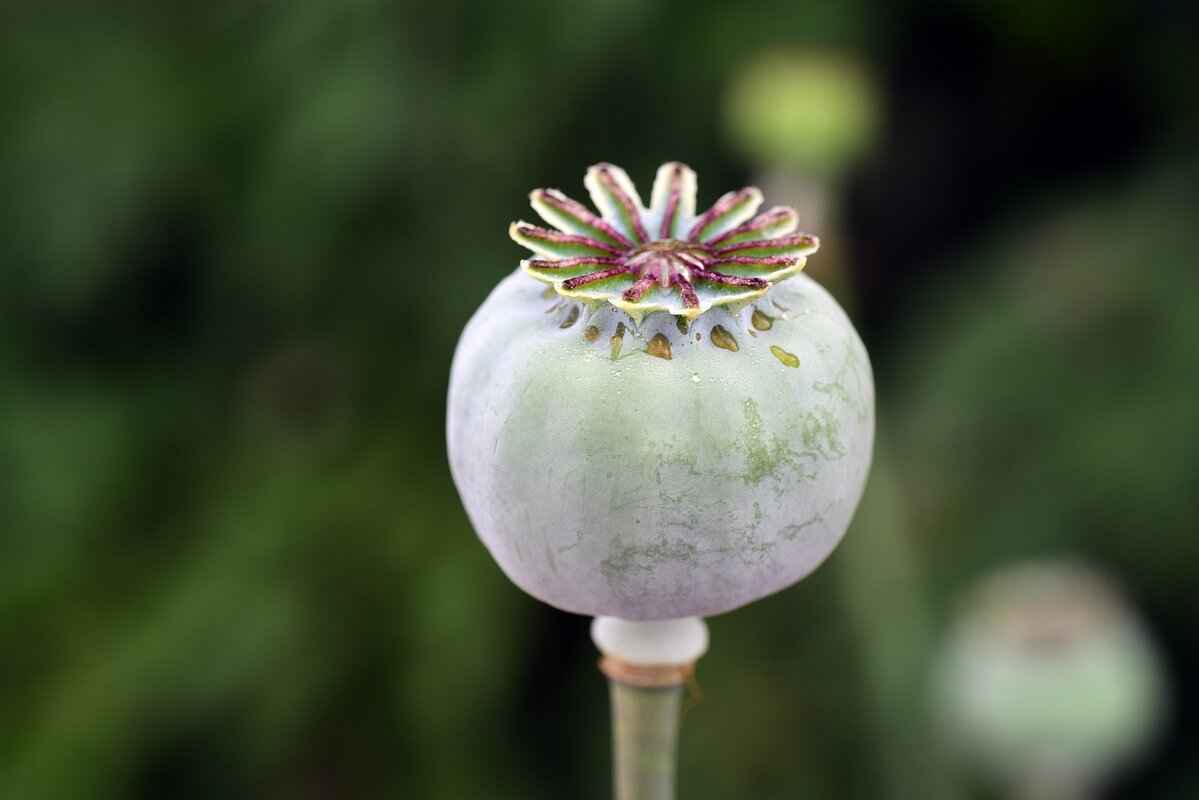
Why Buy Chia Seeds from Costco?
When it comes to purchasing chia seeds, Costco stands out as a top contender for savvy shoppers looking to make the most of their grocery budget. With its reputation for bulk purchasing options and competitive pricing, buying chia seeds from Costco can yield significant savings compared to other retailers. But what exactly makes Costco a wise choice for your chia seed needs? Let’s delve into the details.
Bulk Purchasing Benefits
Costco is renowned for its bulk purchasing model, which allows members to buy larger quantities at lower prices. This strategy is particularly beneficial for health-conscious individuals who are eager to incorporate chia seeds into their daily diet. By buying in bulk, you not only save money but also ensure that you have a steady supply of these nutrient-dense seeds on hand.
Costco’s Competitive Pricing
One of the primary reasons to buy chia seeds from Costco is their competitive pricing. Compared to specialty health food stores and online retailers, Costco often offers lower prices on bulk items. This pricing strategy makes it an attractive option for those looking to stock up on nutritious ingredients without breaking the bank.
Membership Advantages
Having a Costco membership comes with its own set of perks. Members gain access to exclusive deals and discounts, further enhancing the value of purchasing chia seeds in larger quantities. Additionally, Costco frequently runs promotions that can lead to even greater savings, making it an excellent choice for budget-conscious shoppers.
Quality Assurance and Brand Reputation
Costco is known for its commitment to quality, which is especially important when selecting food products. The store often carries reputable brands that ensure product integrity. By purchasing chia seeds from Costco, you can have peace of mind knowing that you are buying a quality product that meets high standards.
Comparing Quality with Other Retailers
When considering where to buy chia seeds, it’s crucial to evaluate quality factors such as sourcing, packaging, and freshness. Costco’s rigorous quality assurance processes often mean that their products are fresher and more reliable than those found at other retailers. This can make a significant difference in both the taste and nutritional value of the chia seeds you consume.
Environmental and Ethical Considerations
Another reason to consider buying chia seeds from Costco is their focus on sustainability and ethical sourcing. Many of the brands available at Costco are committed to environmentally friendly practices, which can be a deciding factor for consumers who prioritize ethical consumption.
Customer Satisfaction and Feedback
Customer reviews play a vital role in assessing the overall value of a product. Many Costco shoppers report positive experiences regarding the quality and affordability of their chia seeds. They often highlight the versatility of chia seeds in various recipes, from smoothies to baked goods. However, it’s also important to note that some customers have raised concerns about packaging and the freshness of the seeds upon purchase.
In conclusion, buying chia seeds from Costco offers numerous benefits, including cost savings, quality assurance, and membership perks. By understanding these advantages, you can make an informed decision that aligns with your health goals and budget.
Costco’s Pricing Strategy
When it comes to shopping for healthy foods, Costco stands out as a popular choice among health-conscious consumers. Their pricing strategy plays a pivotal role in attracting customers, particularly for items like chia seeds. This article delves into the intricacies of Costco’s pricing approach and how it benefits shoppers looking to purchase chia seeds in bulk.
Costco’s pricing strategy is primarily centered around offering competitive prices for bulk items. This approach not only appeals to budget-conscious shoppers but also to those who prefer to buy in larger quantities. By purchasing chia seeds in bulk, customers can enjoy significant savings compared to traditional grocery stores.
One key aspect of this strategy is lower unit pricing. For instance, while a small package of chia seeds at a regular supermarket may cost more per ounce, Costco offers larger bags that reduce the cost per serving. This is particularly advantageous for families or individuals who incorporate chia seeds into their daily diets, as they can stock up without breaking the bank.
Moreover, Costco’s membership model allows members to access exclusive discounts and promotions. These offers can further enhance the value of buying chia seeds in bulk. The membership fee often pays for itself through the savings accrued on bulk purchases, making it a wise investment for regular shoppers.
Another factor that sets Costco apart is its commitment to quality. The retailer is known for carrying reputable brands that ensure product integrity. Shoppers can feel confident that the chia seeds they are purchasing meet high standards of quality and freshness. This assurance is particularly important for health-focused consumers who prioritize the nutritional value of their food.
Costco frequently conducts rigorous quality checks on the products they sell, and this includes their chia seeds. This commitment to quality, combined with their competitive pricing, makes Costco a reliable source for health-conscious shoppers.
When considering where to buy chia seeds, it is essential to compare prices and quality across various retailers. While some health food stores may offer organic chia seeds, their prices often reflect a premium markup. In contrast, Costco provides a more affordable option without compromising on quality.
Additionally, Costco’s bulk purchasing model means that customers can buy larger quantities at a lower price per unit, making it a more economical choice in the long run. This is especially beneficial for those who use chia seeds regularly in recipes or as dietary supplements.
Customer reviews play a crucial role in understanding the value of chia seeds at Costco. Many shoppers rave about the affordability and quality of the chia seeds available. Positive feedback often highlights the seeds’ versatility, as they can be used in smoothies, baked goods, and more.
However, it’s important to note that some customers have expressed concerns regarding packaging or the freshness of the seeds upon purchase. These reviews provide valuable insights for potential buyers, allowing them to make informed decisions based on the experiences of others.
In summary, Costco’s pricing strategy, combined with its commitment to quality and bulk purchasing options, makes it an attractive choice for those looking to buy chia seeds. By offering competitive prices and ensuring product integrity, Costco successfully caters to the needs of health-conscious shoppers.
Membership Benefits
When considering where to buy chia seeds, a Costco membership can be a game changer. This membership not only allows access to a wide range of products but also offers exclusive deals and discounts that can significantly enhance the value of purchasing chia seeds in larger quantities. Let’s delve deeper into the specific benefits that a Costco membership provides for health-conscious shoppers.
One of the primary advantages of having a Costco membership is the exclusive discounts available to members. These discounts can lead to substantial savings, especially when buying in bulk. For instance, purchasing chia seeds in larger quantities at Costco often results in a lower price per ounce compared to local grocery stores or online retailers. This can make a significant difference for those who regularly incorporate chia seeds into their diet.
Costco’s bulk buying model means that members can stock up on chia seeds without worrying about frequent trips to the store. This is particularly beneficial for families or individuals who use chia seeds regularly in their meals, such as in smoothies, oatmeal, or baked goods. By purchasing larger packages, members can enjoy the convenience of having a steady supply at home, which also encourages healthier eating habits.
Costco is known for its commitment to quality, and this extends to the products it offers, including chia seeds. Members can feel confident knowing that Costco often carries well-known and reputable brands. This quality assurance is crucial when it comes to health foods, as it ensures that the chia seeds are fresh and free from contaminants. Additionally, Costco’s return policy allows members to return products that do not meet their expectations, further enhancing the purchasing experience.
For those who prioritize health, a Costco membership can be invaluable. The store frequently stocks organic and non-GMO options, catering to consumers who are mindful of what they eat. By providing access to high-quality chia seeds, Costco supports members in making healthier dietary choices. This aligns with the growing trend of consumers seeking nutritious foods that contribute to overall well-being.
Shopping at Costco is designed to be a convenient experience. With larger store layouts and a wide variety of products, members can find everything they need in one trip. This is particularly advantageous for busy individuals or families who may not have the time to visit multiple stores. The ease of finding chia seeds alongside other health foods makes Costco a one-stop shop for health-conscious consumers.
Finally, being a Costco member often comes with a sense of community. Many members share tips and recipes that incorporate chia seeds, enhancing the overall shopping experience. This community support can inspire new ways to use chia seeds, making it easier for individuals to integrate them into their diets. Additionally, Costco frequently hosts tasting events and product demonstrations, allowing members to discover new products and ways to enjoy their purchases.
In conclusion, a Costco membership offers numerous benefits for those looking to purchase chia seeds. From exclusive discounts and bulk buying options to quality assurance and community support, the advantages are clear. For health-conscious shoppers, investing in a Costco membership can lead to significant savings and a healthier lifestyle.
Quality Assurance
is a critical aspect when it comes to purchasing food products, especially health-related items like chia seeds. At Costco, this commitment to quality is not just a marketing strategy but a fundamental principle that guides their operations. Here’s a closer look at what makes Costco a reliable source for chia seeds and how their quality assurance practices stand out.
Costco is renowned for its rigorous selection process when it comes to the products it offers. This means that when you choose to buy chia seeds from Costco, you can feel confident that you are selecting from reputable brands known for their integrity and commitment to quality. The company collaborates with suppliers who adhere to strict quality control measures, ensuring that the products meet high standards before they even reach the shelves.
One of the key factors in Costco’s quality assurance is their emphasis on transparency. They provide detailed product information, including sourcing and nutritional content, which helps consumers make informed choices. This transparency extends to their chia seeds, where customers can often find information about the origin of the seeds, whether they are organic, and any certifications they may hold.
Furthermore, Costco frequently conducts quality audits of their suppliers. These audits help to ensure that the products are produced in safe, clean environments and that they meet all regulatory requirements. This proactive approach not only protects consumers but also reinforces Costco’s reputation as a trusted retailer.
Another noteworthy aspect of Costco’s commitment to quality is their return policy. If customers are not satisfied with the chia seeds or any other product, they can return it without hassle. This policy reflects Costco’s confidence in the products they sell and provides peace of mind to shoppers.
Additionally, Costco’s buying power allows them to offer high-quality chia seeds at competitive prices. By purchasing in bulk and negotiating directly with suppliers, they can pass on savings to their customers without compromising on quality. This means that you can enjoy the health benefits of chia seeds without breaking the bank.
When comparing chia seeds from Costco to those available at other retailers, it’s essential to consider factors such as freshness and packaging. Costco typically sells chia seeds in larger quantities, which can lead to better freshness due to higher turnover rates. Their packaging is designed to keep the seeds protected from moisture and light, which can degrade quality over time.
In conclusion, choosing chia seeds from Costco is not just about affordability; it’s also about peace of mind regarding quality. With their stringent quality assurance practices, commitment to transparency, and customer-friendly policies, Costco stands out as a reliable source for health-conscious consumers looking to incorporate chia seeds into their diet.
Comparing Quality to Other Retailers
When considering where to purchase chia seeds, particularly from Costco, it is essential to conduct a thorough comparison with other retailers. This evaluation should focus on several key factors: sourcing, packaging, and freshness. By understanding these aspects, you can make an informed decision that ensures you receive the best value for your money.
- Sourcing: The origin of chia seeds plays a crucial role in their quality. Costco often partners with reputable suppliers who adhere to strict quality standards. This commitment to quality can provide consumers with confidence in the integrity of the product. In contrast, some other retailers may source their chia seeds from less reliable suppliers, which can affect both the nutritional value and safety of the seeds.
- Packaging: The packaging of chia seeds is another important consideration. Costco typically offers chia seeds in bulk packaging, which not only reduces waste but also helps maintain freshness. Many other retailers may sell chia seeds in smaller, less protective packaging that can lead to quicker degradation of quality over time. Proper packaging is vital to preserving the seeds’ nutrients and preventing spoilage.
- Freshness: Freshness is a critical factor in the overall quality of chia seeds. Costco’s high turnover rate ensures that their products are frequently restocked, which can lead to fresher seeds on the shelf. In contrast, smaller retailers may have a slower inventory rotation, resulting in older stock that may not be as fresh. When purchasing chia seeds, always check the packaging date to ensure you are getting the freshest product possible.
In addition to these factors, it is also wise to consider customer reviews and feedback when comparing chia seeds from Costco to those from other retailers. Shoppers often share their experiences regarding the quality, taste, and freshness of products, providing valuable insights that can aid in your decision-making process.
Furthermore, the price point is another aspect to consider. Costco is well-known for its competitive pricing, especially for bulk items. This can make purchasing chia seeds from Costco a more economical choice compared to other retailers, where prices may be significantly higher for smaller quantities. However, it’s essential to balance price with quality to ensure you are making the best choice for your health.
Ultimately, when comparing chia seeds from Costco to those available at other retailers, it’s important to evaluate these factors carefully. By focusing on sourcing, packaging, freshness, and customer feedback, you can determine which option provides the best value for your health and wellness goals.
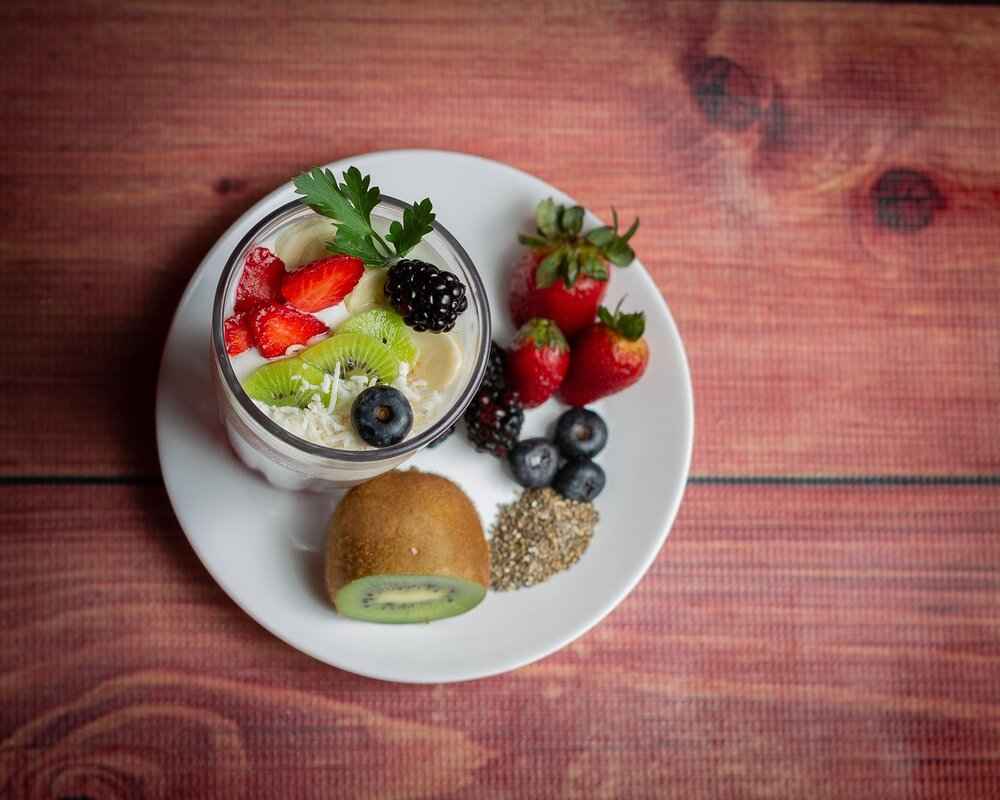
Health Benefits of Chia Seeds
Chia seeds have emerged as a superfood in recent years, drawing attention for their impressive nutritional profile. These tiny seeds are packed with essential nutrients that can significantly benefit your health. In this section, we will delve into the myriad health benefits of chia seeds, helping you understand why they might be a valuable addition to your diet.
Chia seeds are exceptionally rich in:
- Omega-3 Fatty Acids: These are crucial for heart health and reducing inflammation.
- Dietary Fiber: Aiding in digestion and promoting a feeling of fullness.
- Protein: Essential for muscle repair and growth.
- Antioxidants: Protecting your body from free radicals.
- Vitamins and Minerals: Including calcium, magnesium, and phosphorus.
The high content of omega-3 fatty acids in chia seeds can play a significant role in maintaining heart health. Omega-3s are known to lower blood pressure, reduce cholesterol levels, and decrease the risk of heart disease. Regular consumption of chia seeds may help improve overall cardiovascular function.
One of the standout features of chia seeds is their ability to absorb water and expand in your stomach, which can help you feel satiated for longer. This property may assist in controlling appetite and reducing overall calorie intake, making chia seeds a popular choice for those looking to manage their weight.
The high fiber content in chia seeds can promote healthy digestion. Fiber is essential for maintaining regular bowel movements and preventing constipation. Additionally, chia seeds can act as a prebiotic, providing nourishment for beneficial gut bacteria.
Chia seeds are rich in antioxidants and omega-3 fatty acids, both of which have been linked to anti-inflammatory effects. By incorporating chia seeds into your diet, you may help reduce inflammation in the body, which is associated with various chronic diseases.
Chia seeds are a great source of several nutrients that are vital for bone health, including calcium, magnesium, and phosphorus. These minerals contribute to maintaining strong bones and may help prevent osteoporosis, particularly in older adults.
Including chia seeds in your diet may help stabilize blood sugar levels. The fiber content slows down the digestion process, which can prevent spikes in blood sugar after meals. This property makes chia seeds an excellent choice for individuals managing diabetes.
To fully reap the health benefits of chia seeds, consider the following tips:
- Soak chia seeds in water or milk before consumption to enhance their digestibility.
- Add them to smoothies, oatmeal, or yogurt for a nutritious boost.
- Incorporate them into baked goods for added texture and nutrition.
In summary, chia seeds are a powerhouse of nutrients that offer a wide range of health benefits, from supporting heart health to aiding in digestion. By understanding their advantages and incorporating them into your diet, you can make informed decisions that contribute to your overall well-being.
Nutritional Profile
Chia seeds, derived from the Salvia hispanica plant, have garnered significant attention for their impressive . These tiny black or white seeds are not only versatile in culinary applications but also packed with essential nutrients that can contribute to a healthier lifestyle. Below, we delve deeper into the nutritional benefits of chia seeds and why they are a popular choice among health enthusiasts.
Chia seeds are incredibly rich in antioxidants, vitamins, and minerals. They are particularly known for their high content of:
- Omega-3 Fatty Acids: These essential fats are crucial for heart health and can help reduce inflammation in the body.
- Fiber: Chia seeds contain about 11 grams of fiber per ounce, which aids in digestion and promotes a feeling of fullness, making them an excellent option for those managing their weight.
- Protein: With approximately 4 grams of protein per ounce, chia seeds are a valuable plant-based protein source, beneficial for vegetarians and vegans.
- Minerals: They are rich in calcium, magnesium, and phosphorus, essential for bone health and metabolic functions.
The high levels of antioxidants in chia seeds help combat oxidative stress in the body. This can lead to a reduced risk of chronic diseases, including heart disease and cancer. Antioxidants neutralize free radicals, which can damage cells and contribute to aging and various health issues.
Fiber is essential for maintaining a healthy digestive system. The soluble fiber in chia seeds absorbs water, forming a gel-like substance that can help regulate bowel movements and prevent constipation. Additionally, this fiber content can help manage blood sugar levels by slowing the absorption of sugar into the bloodstream.
Thanks to their high fiber content, chia seeds can promote a feeling of fullness. This satiety can lead to reduced overall calorie intake, making them a popular choice for those looking to manage their weight. When consumed, chia seeds expand in the stomach, which can help curb hunger and prevent overeating.
Incorporating chia seeds into your meals is simple and enjoyable. Here are a few easy ways to add them to your diet:
- Smoothies: Blend chia seeds into your favorite smoothie for an added nutritional boost.
- Baking: Add chia seeds to muffins, breads, or pancakes for extra texture and nutrition.
- Puddings: Create a delicious chia pudding by soaking the seeds in milk or a dairy-free alternative overnight.
- Salads: Sprinkle chia seeds over salads for added crunch and nutrition.
While chia seeds offer numerous health benefits, it is essential to consume them in moderation. Some individuals may experience digestive discomfort if they consume too many seeds at once, primarily due to their high fiber content. It is advisable to gradually increase intake to allow your digestive system to adjust.
In summary, chia seeds are a powerhouse of nutrition, offering a plethora of health benefits that can enhance your overall well-being. Their rich content of omega-3 fatty acids, fiber, protein, and antioxidants makes them a worthy addition to any diet. Whether you are looking to boost your nutrient intake or manage your weight, chia seeds can be a valuable ally in your health journey.
Potential Health Risks
Chia seeds have become a staple in many health-conscious diets due to their impressive nutritional profile. However, it is crucial to understand that while they provide numerous health benefits, there are also associated with their consumption. This section will delve into these risks, ensuring you are well-informed before incorporating chia seeds into your diet.
One of the primary concerns regarding chia seeds is the potential for digestive discomfort. Some individuals may experience bloating, gas, or even constipation when consuming chia seeds, especially when they are not adequately hydrated. This is primarily due to their high fiber content, which can be overwhelming for those who are not used to a fiber-rich diet.
When consuming chia seeds, it is essential to stay hydrated. These seeds can absorb up to 12 times their weight in water, leading to a gel-like consistency. If you consume them without sufficient liquid, they may swell in your digestive tract, causing discomfort. To mitigate this risk, consider soaking chia seeds in water or adding them to smoothies, where they can be more easily digested.
Though rare, some individuals may have an allergic reaction to chia seeds. Symptoms can include itching, swelling, or gastrointestinal distress. If you are trying chia seeds for the first time, it is advisable to start with a small amount to monitor for any adverse reactions.
Chia seeds can also interact with certain medications, particularly those related to blood pressure and blood sugar control. Their ability to lower blood sugar levels could amplify the effects of diabetes medications, leading to hypoglycemia. If you are on medication, consult with your healthcare provider before adding chia seeds to your diet.
To enjoy the benefits of chia seeds while minimizing risks, moderation is crucial. A typical serving size is about 1-2 tablespoons per day. By adhering to this guideline, you can reap the health benefits without overwhelming your digestive system.
While chia seeds are packed with nutrients and offer various health benefits, it is vital to approach their consumption with caution. By understanding potential health risks, staying hydrated, and consuming them in moderation, you can enjoy chia seeds as a healthy addition to your diet. Always listen to your body and consult a healthcare professional if you have any concerns regarding their incorporation into your meals.
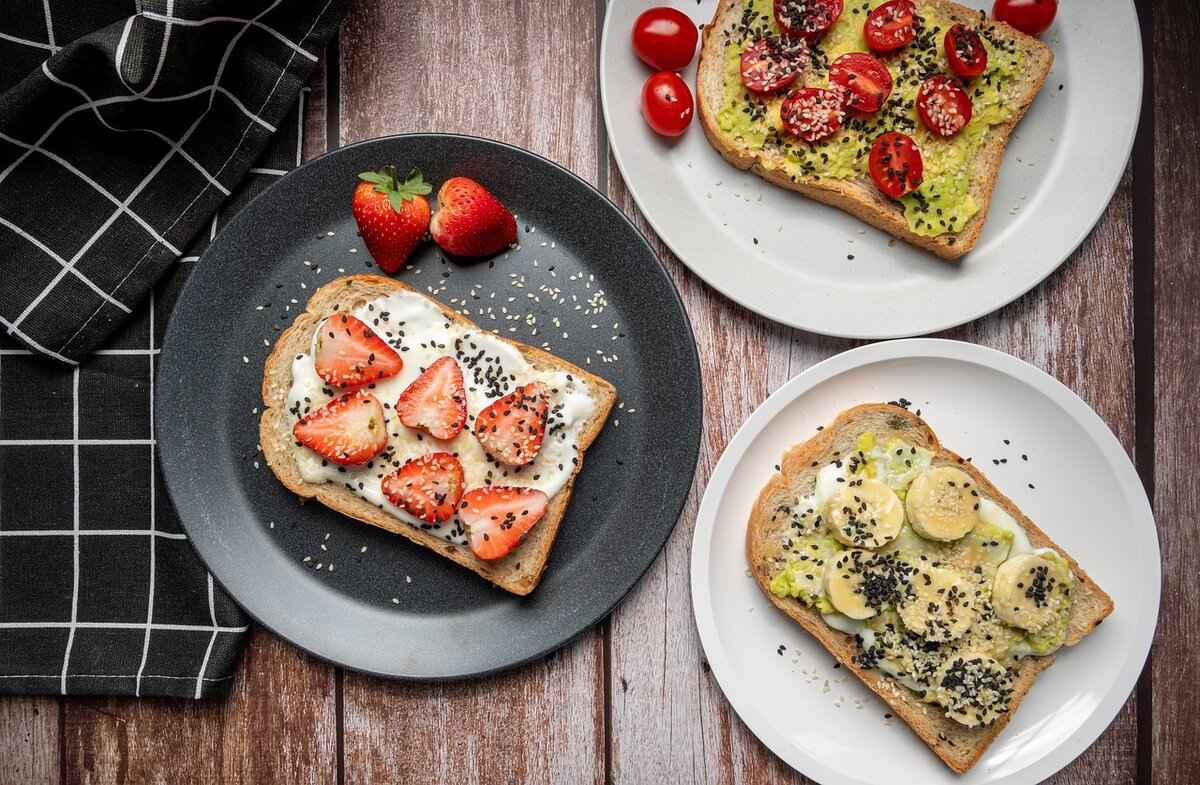
How to Incorporate Chia Seeds into Your Diet
Incorporating chia seeds into your meals can be both easy and enjoyable. These tiny, nutrient-rich seeds can enhance the flavor and texture of various dishes while delivering a wealth of health benefits. Here are some creative and practical ways to include chia seeds in your diet.
One of the simplest ways to enjoy chia seeds is by adding them to your smoothies. They blend seamlessly into your favorite fruit and vegetable combinations, providing a boost of nutrition without altering the taste. Just a tablespoon of chia seeds can offer a significant amount of omega-3 fatty acids and fiber.
Another popular method is to make chia seed pudding. This versatile dish can be prepared by mixing chia seeds with your choice of milk (dairy or plant-based) and letting it sit overnight. The seeds absorb the liquid and create a thick, creamy texture. You can sweeten it with honey or maple syrup and add toppings like fresh fruit, nuts, or granola for added flavor and crunch.
Chia seeds can also be incorporated into your baked goods. Whether you’re making muffins, bread, or cookies, adding chia seeds can enhance the nutritional profile of your treats. They can replace eggs in vegan recipes by mixing one tablespoon of chia seeds with three tablespoons of water, allowing it to sit until it forms a gel-like consistency.
Using chia seeds as a thickening agent is another excellent option. When mixed with liquid, they swell and create a gel that can be used to thicken soups, sauces, or even smoothies. This not only enhances the texture but also adds nutritional value to your dishes.
For a quick and easy addition, sprinkle chia seeds on your salads or mix them into yogurt. This not only boosts the meal’s nutritional content but also adds a delightful crunch. Pairing chia seeds with fruits in yogurt can create a satisfying and healthy breakfast or snack.
Homemade energy bars are another way to incorporate chia seeds. Combine them with oats, nut butter, and dried fruits for a nutritious snack that’s perfect for on-the-go. Chia seeds provide sustained energy, making them an ideal ingredient for pre- or post-workout snacks.
To keep your chia seeds fresh and maintain their nutritional value, store them in a cool, dry place. An airtight container in the pantry or refrigerator can help extend their shelf life. Always check for any signs of spoilage before use.
In summary, incorporating chia seeds into your diet can be a delightful and nutritious choice. With their versatility and health benefits, these seeds can enhance a variety of meals and snacks. Whether you prefer them in smoothies, puddings, baked goods, or as a topping, chia seeds are a fantastic addition to any diet.
Popular Recipes Using Chia Seeds
Chia seeds are incredibly versatile and can be incorporated into a wide variety of dishes, making them an excellent addition to any diet. With their unique ability to absorb liquid and form a gel-like consistency, they can enhance both the texture and nutritional value of many recipes. Here, we will explore some that showcase their health benefits and culinary potential.
Chia seeds are not only rich in omega-3 fatty acids, but they also provide a good source of fiber, protein, and various essential minerals. Their neutral flavor makes them suitable for both sweet and savory dishes, allowing for endless culinary creativity.
One of the most popular ways to enjoy chia seeds is by making chia seed pudding. This simple recipe requires just a few ingredients:
- 1/4 cup chia seeds
- 1 cup almond milk (or any milk of choice)
- 1 tablespoon honey or maple syrup
- 1/2 teaspoon vanilla extract
To prepare, mix all the ingredients in a bowl or jar, stir well, and let it sit in the refrigerator for at least four hours or overnight. The result is a creamy, nutrient-packed pudding that can be topped with fruits, nuts, or granola for added flavor and crunch.
Chia seeds can also be incorporated into homemade energy bars. Here’s a quick recipe:
- 1 cup oats
- 1/2 cup nut butter (such as almond or peanut butter)
- 1/4 cup honey or agave syrup
- 1/4 cup chia seeds
- 1/4 cup dried fruits (like cranberries or apricots)
Mix all ingredients in a bowl, press the mixture into a lined baking dish, and refrigerate until firm. Cut into bars for a nutritious snack that provides sustained energy throughout the day.
Adding chia seeds to your smoothies is an excellent way to enhance their nutritional profile. Simply toss a tablespoon of chia seeds into your favorite smoothie recipe. For example:
- 1 banana
- 1 cup spinach
- 1 cup almond milk
- 1 tablespoon chia seeds
Blend until smooth for a delicious, nutrient-dense drink that’s perfect for breakfast or a post-workout snack.
For those who enjoy spreads, chia seed jam is a fantastic alternative to traditional fruit preserves. To make it, combine:
- 2 cups fresh or frozen fruit
- 2 tablespoons chia seeds
- 1-2 tablespoons honey or maple syrup (optional)
Cook the fruit over low heat until it breaks down, then stir in the chia seeds and sweetener. Let it cool, and you’ll have a delicious jam that’s rich in fiber and free from added sugars.
Incorporating chia seeds into your meals can be both enjoyable and beneficial for your health. From puddings and energy bars to smoothies and jams, the possibilities are endless. Exploring these recipes can help you discover new ways to enjoy the unique health benefits of chia seeds while enhancing your culinary repertoire.
Storage Tips for Freshness
When it comes to maintaining the quality and longevity of chia seeds, proper storage is essential. These tiny seeds, known for their impressive nutritional profile, can lose their beneficial properties if not stored correctly. In this section, we will explore effective storage tips to ensure that your chia seeds remain fresh and nutritious for as long as possible.
Chia seeds are highly sensitive to environmental factors such as moisture, light, and heat. Exposure to these elements can lead to the degradation of their nutritional value, including the loss of omega-3 fatty acids and antioxidants. Therefore, understanding how to store them properly is crucial for anyone looking to maximize the health benefits of these seeds.
- Cool Temperature: Chia seeds should be kept in a cool environment, ideally below 70°F (21°C). A pantry or cupboard away from heat sources is suitable.
- Dry Environment: Moisture can cause chia seeds to clump together or even sprout. Ensure the storage area is dry to prevent any moisture-related issues.
- Darkness: Light exposure can also affect the quality of chia seeds. Store them in a dark container or a place that is not exposed to direct sunlight.
Choosing the right container is just as important as the storage environment. Here are some effective options:
- Airtight Glass Jars: Glass jars with airtight seals are excellent for keeping chia seeds fresh. They prevent air and moisture from entering.
- Opaque Containers: Consider using opaque or dark-colored containers to block light, which can degrade the seeds over time.
- Vacuum-Sealed Bags: For long-term storage, vacuum-sealed bags can help extend the shelf life of chia seeds significantly.
While chia seeds can be stored at room temperature, refrigeration is recommended for those who buy in bulk or want to extend their shelf life even further. Storing chia seeds in the refrigerator can help maintain their freshness for up to two years. Just make sure they are in an airtight container to prevent moisture absorption.
Before using chia seeds, it’s wise to check for freshness. Look for any signs of off-smells or discoloration. Fresh chia seeds should have a mild, nutty aroma. If they smell rancid or have changed color, it’s best to discard them.
In summary, proper storage of chia seeds is crucial for maintaining their freshness and nutritional value. By keeping them in a cool, dry, and dark environment, using appropriate containers, and considering refrigeration for long-term storage, you can ensure that these super seeds remain a healthy addition to your diet. Remember to always check for freshness before use to fully enjoy the benefits that chia seeds have to offer.
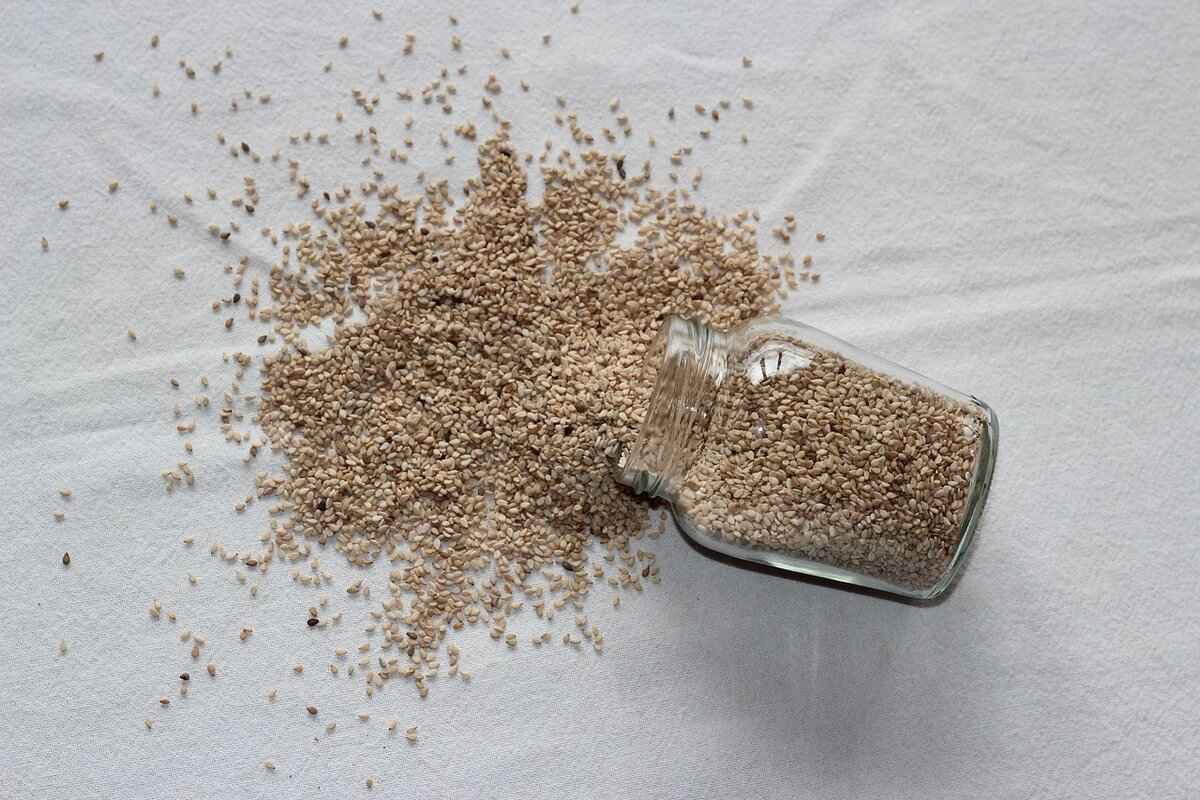
Are There Alternatives to Chia Seeds?
Chia seeds have become a staple for health enthusiasts, but they are not the only option available for those seeking nutritious additions to their diet. Exploring alternatives to chia seeds can not only diversify your meals but also provide a range of health benefits that may suit your tastes and dietary needs.
When considering alternatives, it’s essential to look for seeds and grains that offer similar nutritional benefits. Here are some noteworthy options:
- Flaxseeds: These tiny seeds are rich in omega-3 fatty acids and fiber, similar to chia seeds. They have a nutty flavor and can be ground for easier digestion and absorption of nutrients.
- Hemp Seeds: Packed with protein, healthy fats, and essential amino acids, hemp seeds are another excellent alternative. Their creamy texture makes them perfect for smoothies and salads.
- Pumpkin Seeds: Also known as pepitas, pumpkin seeds are high in magnesium, antioxidants, and healthy fats. They can be consumed raw or roasted, adding a crunchy element to dishes.
- Quinoa: A complete protein source, quinoa is a versatile grain that can be used in salads, bowls, and as a side dish. It provides fiber and essential nutrients.
Diversifying your diet with various seeds and grains can enhance your nutrient intake. Each alternative has its unique set of health benefits, which can complement your overall dietary goals. For example:
- Flaxseeds are particularly beneficial for heart health due to their high omega-3 content.
- Hemp seeds contain all nine essential amino acids, making them a complete protein source for vegetarians and vegans.
- Pumpkin seeds are known for their high magnesium content, which supports muscle and nerve function.
Incorporating these alternatives can be easy and enjoyable. Here are some practical tips:
- Flaxseeds: Add ground flaxseeds to your morning oatmeal or smoothies for a nutrient boost.
- Hemp Seeds: Sprinkle hemp seeds on salads or mix them into yogurt for added texture and nutrition.
- Pumpkin Seeds: Use pumpkin seeds as a topping for soups or blend them into homemade granola bars.
- Quinoa: Cook quinoa as a base for grain bowls or salads, mixing in your favorite vegetables and proteins.
While these alternatives offer numerous health benefits, it’s essential to consider potential drawbacks:
- Flaxseeds: Whole flaxseeds can pass through the digestive system undigested, so it’s best to consume them ground.
- Hemp Seeds: Although nutritious, they can be higher in calories, so moderation is key.
- Pumpkin Seeds: Roasting can deplete some nutrients, so opt for raw or lightly roasted varieties.
- Quinoa: It contains saponins, which can impart a bitter taste if not rinsed properly before cooking.
In conclusion, while chia seeds are a fantastic option for health-conscious individuals, exploring alternatives like flaxseeds, hemp seeds, pumpkin seeds, and quinoa can enhance your diet. Each of these alternatives offers unique flavors and health benefits, making it easy to find options that suit your preferences and nutritional needs.
Flaxseeds vs. Chia Seeds
Flaxseeds and chia seeds are both celebrated for their impressive nutritional profiles, yet they possess distinct differences in flavor and texture that can influence your choice between the two. Understanding these differences is essential for making an informed decision tailored to your dietary needs and personal preferences.
Flaxseeds, derived from the Linum usitatissimum plant, are small, flat seeds that come in two primary varieties: golden and brown. They have a slightly nutty flavor and a crunchy texture, making them a popular addition to various dishes.
Chia seeds, on the other hand, originate from the Salvia hispanica plant. These tiny seeds are known for their ability to absorb liquid and form a gel-like consistency, which can enhance the texture of smoothies, puddings, and baked goods.
| Nutrient | Flaxseeds | Chia Seeds |
|---|---|---|
| Omega-3 Fatty Acids | High | High |
| Fiber | High | Very High |
| Protein | Moderate | Moderate |
| Calcium | Low | High |
The flavor of flaxseeds is often described as nutty and earthy, which can add depth to salads, granola, and baked goods. In contrast, chia seeds have a more neutral taste, allowing them to blend seamlessly into various recipes without altering the overall flavor.
Flaxseeds maintain a crunchy texture when whole, but they are often ground to enhance nutrient absorption. Ground flaxseeds can be incorporated into smoothies or used as an egg substitute in baking. Chia seeds, when soaked in liquid, swell and create a gel-like texture, making them ideal for puddings and as a thickening agent in recipes.
Flaxseeds are particularly rich in lignans, which have antioxidant properties and may support heart health. They are also known to aid in digestion due to their high fiber content and can help regulate cholesterol levels.
Chia seeds are a powerhouse of nutrients, offering significant amounts of fiber, protein, and essential minerals. Their high antioxidant content can help combat oxidative stress, while their ability to absorb water can promote hydration and satiety.
Your choice between flaxseeds and chia seeds may depend on several factors:
- Texture Preference: If you enjoy a crunchy texture, flaxseeds might be your best bet. For a smoother consistency, chia seeds are preferable.
- Flavor Considerations: Choose flaxseeds for a nutty flavor, or opt for chia seeds if you prefer a more neutral taste.
- Nutritional Goals: Consider your dietary needs—if you’re looking for calcium, chia seeds are the better option.
In conclusion, both flaxseeds and chia seeds offer remarkable health benefits and can be valuable additions to your diet. By understanding their unique characteristics, you can select the seed that aligns best with your taste preferences and nutritional goals.
Other Superfoods to Consider
When it comes to enhancing our diets, superfoods are often at the forefront of health discussions. These nutrient-dense foods are celebrated for their ability to boost health and wellness. In this article, we will explore some noteworthy alternatives to chia seeds, including hemp seeds and quinoa, which can add variety and additional nutrients to your meals.
Hemp seeds are small, brown seeds from the hemp plant, Cannabis sativa. They are rich in healthy fats, protein, and essential minerals. With a nutty flavor, they can be easily incorporated into various dishes.
- Rich in Omega-3 Fatty Acids: Hemp seeds contain a perfect ratio of omega-3 to omega-6 fatty acids, promoting heart health.
- High in Protein: With about 10 grams of protein per 3 tablespoons, they are an excellent plant-based protein source.
- Loaded with Nutrients: Hemp seeds are packed with vitamins and minerals, including magnesium, vitamin E, and potassium.
Incorporating hemp seeds into your diet is simple. They can be sprinkled on salads, blended into smoothies, or added to baked goods for an extra nutritional boost.
Quinoa is a grain-like seed that has gained popularity as a gluten-free alternative to traditional grains. It is a complete protein, containing all nine essential amino acids, making it a favorite among vegetarians and vegans.
- High in Fiber: Quinoa is a great source of dietary fiber, which aids in digestion and helps maintain a healthy weight.
- Rich in Antioxidants: This superfood is packed with antioxidants that help combat oxidative stress in the body.
- Low Glycemic Index: Quinoa has a low glycemic index, making it suitable for those managing blood sugar levels.
Quinoa can be used in various dishes, from salads to soups and even as a breakfast porridge. Its versatility makes it a valuable addition to any meal plan.
In addition to hemp seeds and quinoa, there are numerous other superfoods that can enhance your diet:
- Spirulina: A blue-green algae rich in protein and vitamins.
- Kale: A leafy green packed with vitamins A, C, and K.
- Acai Berries: High in antioxidants and known for their anti-inflammatory properties.
Each of these superfoods offers unique health benefits and can be easily included in your daily meals. By exploring these alternatives, you can diversify your nutrient intake and enhance your overall health.
In conclusion, while chia seeds are an excellent choice for boosting nutrition, alternatives like hemp seeds and quinoa provide additional health benefits and variety. Incorporating a mix of these superfoods into your diet can lead to a more balanced and healthful lifestyle.
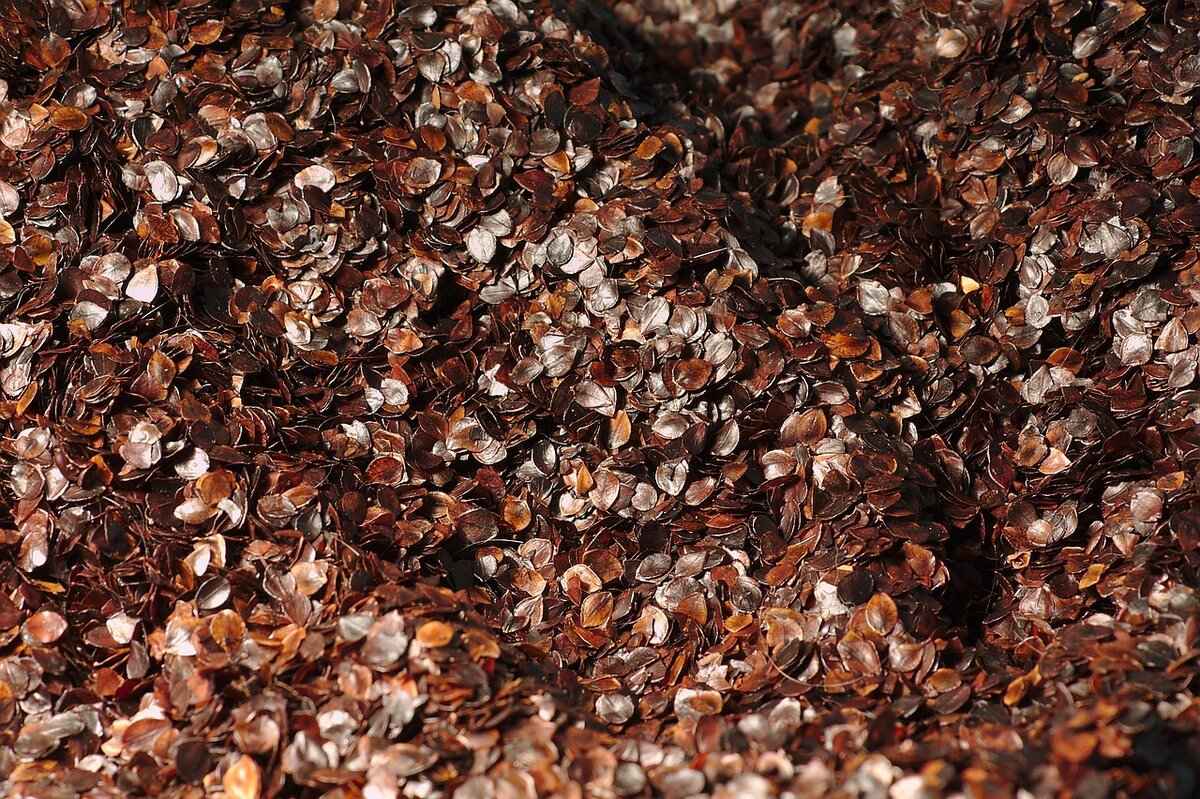
Customer Reviews and Feedback
Customer feedback is a crucial element when it comes to evaluating a product, especially food items like chia seeds. Reviews from Costco shoppers can provide invaluable insights into the quality and value of their chia seeds. Understanding customer experiences can help potential buyers make informed decisions.
Customer reviews serve as a window into the real-world performance of a product. When it comes to chia seeds, reviews can highlight aspects such as:
- Quality: Are the seeds fresh and free from contaminants?
- Taste: Do they have a pleasant flavor that enhances recipes?
- Value for Money: Are the prices competitive compared to other retailers?
Many customers have shared their positive experiences with Costco’s chia seeds. Here are some common themes:
- Affordability: Shoppers frequently mention that the bulk pricing at Costco allows them to stock up without breaking the bank.
- Versatility: Customers love incorporating chia seeds into a variety of dishes, from smoothies to baked goods, enhancing their nutritional intake.
- Quality Assurance: Many reviews highlight the freshness and quality of the seeds, often stating they have a longer shelf life than those purchased from other stores.
While the majority of reviews are positive, some customers have raised concerns. Here are a few common complaints:
- Packaging Issues: Some shoppers have reported that the packaging can be a bit cumbersome, making it difficult to store the seeds properly.
- Freshness Variability: A few customers have expressed dissatisfaction with the freshness of the seeds upon purchase, stating that they sometimes find older stock.
Overall, customer feedback on Costco’s chia seeds paints a largely favorable picture. The combination of affordability, quality, and versatility makes them a popular choice among health-conscious consumers. However, it’s essential to consider both the positive and negative reviews to get a balanced view.
When reading customer reviews, it’s helpful to keep the following tips in mind:
- Look for Patterns: Pay attention to recurring themes in the reviews. If multiple customers mention a specific issue, it may be worth considering.
- Check Ratings: A high overall rating can indicate general satisfaction, but delve into the comments for a deeper understanding.
- Consider the Source: Reviews from verified purchasers can provide more reliable insights compared to anonymous or unverified reviews.
In conclusion, customer reviews are an essential resource when evaluating the purchase of chia seeds from Costco. They offer a wealth of information regarding quality, price, and overall satisfaction, making them an indispensable tool for informed decision-making.
Positive Experiences
When it comes to health foods, chia seeds have carved out a significant niche due to their impressive nutritional profile and versatility. Many customers have shared their positive experiences with Costco’s chia seeds, often emphasizing their quality and affordability. This section will delve into the reasons behind such enthusiastic feedback.
Customers frequently highlight the superior quality of Costco’s chia seeds compared to other brands. They note that the seeds are consistently fresh, which is essential for maximizing their health benefits. Many users have reported that the taste is mild and pleasant, making them an easy addition to various dishes.
Costco’s bulk pricing strategy allows customers to purchase chia seeds at a fraction of the cost compared to health food stores. Shoppers appreciate that they can stock up on these nutrient-dense seeds without breaking the bank. This affordability does not come at the expense of quality, which is a significant factor for health-conscious consumers.
Another aspect that customers rave about is the versatility of chia seeds. They can be seamlessly incorporated into a variety of recipes, from smoothies to baked goods. Many users have shared their creative uses, such as:
- Adding chia seeds to overnight oats for a nutritious breakfast.
- Using them as a thickening agent in soups and sauces.
- Incorporating them into energy bars or protein bites for a healthy snack.
This adaptability makes chia seeds a favorite among home cooks and health enthusiasts alike.
Customer reviews on various platforms consistently reflect satisfaction with Costco’s chia seeds. Many users have taken to social media and forums to share their experiences, often stating:
- “I love how fresh these chia seeds are; they really elevate my smoothies!”
- “Costco’s prices are unbeatable, and the quality is top-notch!”
- “I’ve tried other brands, but I keep coming back to Costco for their chia seeds.”
This community feedback reinforces the notion that Costco’s chia seeds are a reliable choice for consumers.
Beyond just taste and price, customers often mention the health benefits associated with chia seeds. Packed with omega-3 fatty acids, fiber, and protein, these seeds contribute to overall well-being. Shoppers appreciate that they are making a nutritious choice for themselves and their families.
Costco’s commitment to customer satisfaction also plays a role in the positive experiences reported by shoppers. The store’s return policy and customer service ensure that any issues with products can be addressed promptly, which adds to the overall positive shopping experience.
In summary, the positive experiences shared by customers regarding Costco’s chia seeds stem from their quality, affordability, and versatility. With numerous ways to incorporate them into meals and a strong community backing, these seeds are quickly becoming a staple in many households.
Common Complaints
When considering the purchase of chia seeds from Costco, it’s essential to examine not only the positive experiences shared by many customers but also the that some individuals have expressed. While the majority of reviews highlight the quality and affordability of these seeds, a few concerns have emerged regarding aspects such as packaging and freshness upon purchase.
One of the primary complaints revolves around packaging issues. Some customers have reported that the packaging of chia seeds can be less than ideal, leading to concerns about the seeds being exposed to air or moisture. This is particularly important because exposure can compromise the quality and longevity of the seeds. For instance, a customer might receive a bag that appears to have been poorly sealed or damaged during shipping, raising doubts about the integrity of the product.
Another common concern is the freshness of the seeds at the time of purchase. Some buyers have noted that the seeds they received did not seem as fresh as they had anticipated. This can be a significant drawback, especially for those who rely on chia seeds for their nutritional benefits. Freshness is crucial, as older seeds may not provide the same health benefits and could affect the taste and texture of recipes.
- Storage Conditions: Customers have raised concerns about how chia seeds are stored before being sold. If they are not kept in optimal conditions, this could lead to a decline in quality.
- Expiration Dates: Some shoppers have mentioned that the expiration dates on the packages were not clearly marked, causing uncertainty about the seeds’ viability.
- Customer Service: A few individuals have expressed dissatisfaction with Costco’s customer service regarding returns or exchanges for products that did not meet their expectations.
Despite these complaints, it is important to note that many customers still find great value in purchasing chia seeds from Costco. They appreciate the bulk purchasing options and the overall cost savings that come with buying in larger quantities. Additionally, Costco’s commitment to quality assurance often mitigates many of these concerns, as they typically carry reputable brands.
In conclusion, while some customers have voiced concerns about packaging and freshness, these issues do not overshadow the overall positive feedback regarding the value and health benefits of chia seeds from Costco. Prospective buyers should weigh these factors carefully, considering their own priorities and preferences when deciding whether to purchase.
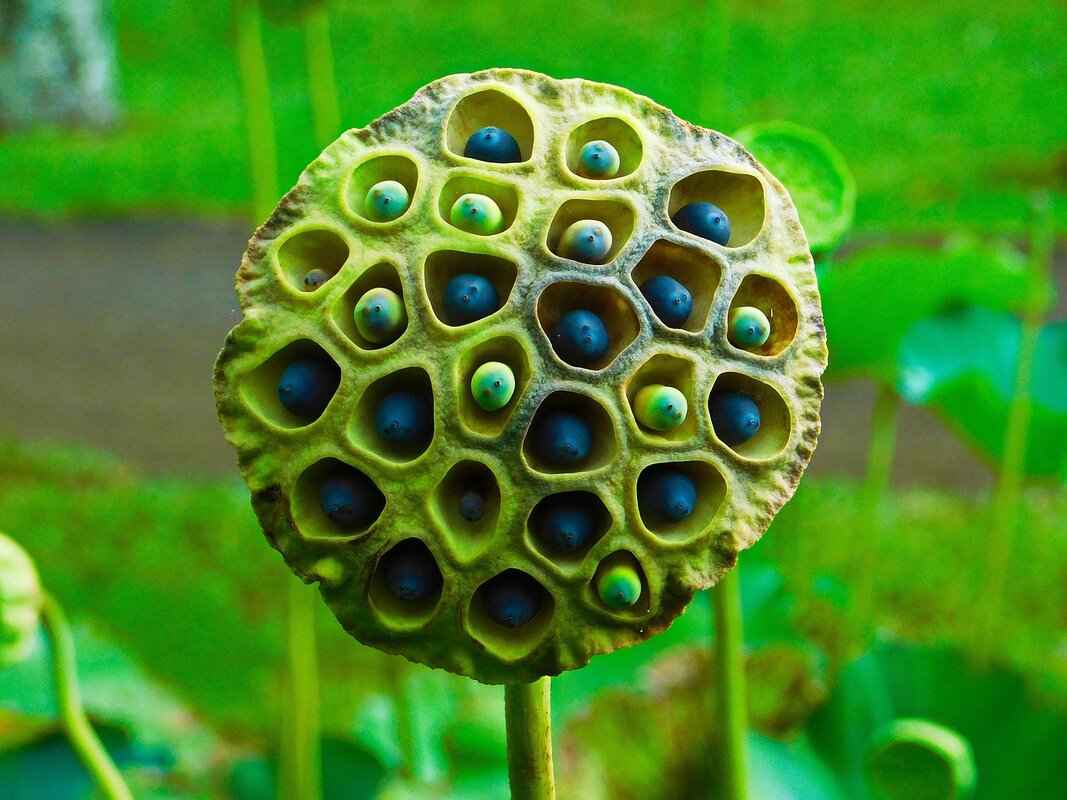
Final Thoughts on Buying Chia Seeds from Costco
When considering whether to purchase chia seeds from Costco, it’s essential to weigh various factors that may influence your decision. These include your personal dietary requirements, budget, and the quality of the seeds. This comprehensive review aims to provide you with the necessary insights to make an informed choice.
Chia seeds are an excellent source of omega-3 fatty acids, fiber, and protein, making them a popular addition to many diets. Before purchasing, consider your specific health goals. Are you looking to increase your fiber intake? Or perhaps you want to incorporate more plant-based protein into your meals? Understanding your dietary needs will help you determine if chia seeds are a worthwhile investment.
Costco is renowned for its bulk purchasing options, often providing significant savings compared to other retailers. However, price should not be the only consideration. Assess the quality of the chia seeds offered. Costco typically stocks reputable brands, ensuring that you receive a product that meets high standards of freshness and integrity. It may also be beneficial to compare the price per ounce with other stores to ensure you’re getting the best deal.
- Positive Feedback: Many customers appreciate the affordability and quality of Costco’s chia seeds. Shoppers often highlight their versatility, noting how easily they can be incorporated into various recipes.
- Concerns: Some customers have reported issues with packaging or the freshness of the seeds upon purchase. Reading customer reviews can provide valuable insights into the product’s consistency and reliability.
Chia seeds are not just a trend; they offer numerous health benefits. Their high fiber content can aid in digestion and promote a feeling of fullness, which may assist in weight management. Additionally, the antioxidants present in chia seeds can contribute to overall health by combating oxidative stress. However, it’s crucial to consume them in moderation, as overconsumption may lead to digestive discomfort for some individuals.
Incorporating chia seeds into your diet can be both simple and enjoyable. They can be added to smoothies, yogurt, or even baked goods for a nutritious boost. For those looking to experiment, chia pudding is a popular recipe that showcases their versatility. Proper storage is also key; keeping your chia seeds in a cool, dry place can help maintain their freshness and nutritional value.
If you’re still unsure about purchasing chia seeds from Costco, consider exploring alternatives. Flaxseeds, for instance, offer similar health benefits but come with their own unique taste and texture. Additionally, other superfoods like hemp seeds or quinoa can diversify your diet and provide a range of nutrients.
Ultimately, the decision to buy chia seeds from Costco hinges on your individual dietary needs and preferences. By evaluating the health benefits, pricing, and quality, you can make a choice that aligns with your lifestyle. If you’re looking for a cost-effective way to incorporate these nutrient-rich seeds into your diet, Costco’s offering might be worth considering. Remember to review customer feedback and weigh the pros and cons before making your purchase.
Frequently Asked Questions
- What are the main health benefits of chia seeds?
Chia seeds are nutrient powerhouses packed with omega-3 fatty acids, fiber, protein, and antioxidants. They can help improve digestion, promote a feeling of fullness, and support heart health.
- How should I store chia seeds for maximum freshness?
To keep your chia seeds fresh, store them in a cool, dry place, preferably in an airtight container. This helps preserve their nutritional value and extends their shelf life.
- Are there any potential side effects of consuming chia seeds?
While chia seeds are generally safe, some people may experience digestive discomfort if consumed in large quantities. It’s best to start with small amounts and gradually increase your intake.
- Can I find chia seeds at other retailers, and how do they compare to Costco?
Yes, chia seeds are available at many retailers. However, Costco often offers competitive pricing and bulk purchasing options, making it a great choice for those looking to save money.
- What are some easy ways to incorporate chia seeds into my diet?
You can add chia seeds to smoothies, yogurt, oatmeal, or baked goods. They can also be used to make chia puddings or as a thickening agent in recipes!



